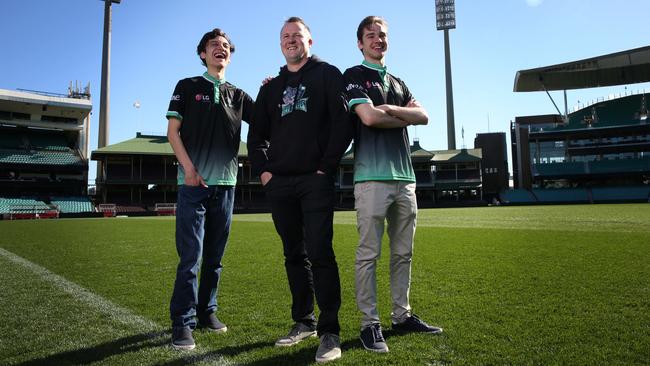E-sports ready to hit the big league
E-sports is already making money and is forecasting multi-million-dollar profits within a few years.

Forget shelling out tens of millions of dollars to buy a rugby league or soccer team, almost all of which are likely to lose money every season anyway.
Instead, call it the sporting equivalent of investing in a tech start-up — except in this case it is already making money and is forecasting multi-million-dollar profits within a few years.
It is also an opportunity to buy a team that has a potential audience of tens of millions of fans in big global tournaments in a sector that some are claiming as being on the cusp of a golden era.
So goes the pitch by the vendors of Australian e-sports organisation Kindred, which has been put on the market in a process being run on behalf of its owners by boutique investment firm Guinevere Capital.
Based on revenue multiples being achieved in the e-sports industry around the world, and on previous transactions, Guinevere could receive between $7 million and $10m for Kindred’s owners, who are selling up due to global cross-team ownership restrictions imposed by game company Riot Games after stumping up €10.5m ($16.9m) to buy a franchise in Britain’s League of Legends championship.
Sales documents seen by The Weekend Australian reveal Kindred broke even on $800,000 revenue in the financial year, and are forecasting 34 per cent annual growth for the next five years and EBITDA of $600,000 in 2022 and then $1.2m in pre-tax profits on $3.3m revenue by 2024.

Guinevere chairman Dave Harris says potential investors should look at e-sports as a sector with an extremely promising long-term future with plenty of younger fans who are watching its competitions online instead of traditional sports. “We know we are early in our commercialisation journey, but we have experienced good year-on-year growth,” he says.
Harris is selling an organisation that was established in 2014 and has about 30 staff (employees, contractors and players) on its books and is operating from a high-performance centre at the Sydney Cricket Ground.
E-sports is relatively small in Australia but has experienced huge growth overseas, with a Goldman Sachs study estimating revenue in the sector of $US1 billion ($1.4bn) this year, rising to $US3bn by 2021, by which time it could become the second most watched sport behind the NFL.
“These viewers are loyal, high-income millennial consumers that are hard to reach through traditional channels,” Kindred’s pitch to buyers says.
In a similar model to that of soccer or basketball, where teams compete in regional leagues and the biggest and most popular competitions are overseas, some of Kindred’s teams are Australian-based but ply their trade in Oceanic leagues and then potentially global championships.
Like traditional sports clubs, Kindred gets some revenue from centralised funding distributed by the online game companies, some broadcasting income and money from sponsors such as electronics company LG and headset maker HyperX. The Dire Wolves play League of Legends, a multiplayer online battle arena game, in the Oceanic Premier League, a competition they have won four times. They have also taken part in the League of Legends world championships where 51 million viewers watched it play against Chinese team EDG in 2018.
Kindred also has the Sydney Drop Bears team in Overwatch, an online team-based shooting game, and N8, which plays the Electronic Arts FIFA soccer game, as well as the Supa-Stellar female gaming organisation.
Harris says the next stage of Kindred’s commercialisation will come from signing sponsorship deals with mainstream brands.
As for who his potential buyers are, Harris says many global teams are owned by consortiums of star athletes or sports clubs branching into e-sports, as well as bigger investment firms. “We have had a lot more interest from overseas, and it is probably the case where people overseas realise the potential and scale of the sector and you’ve got more venture capital money coming in, whereas Australia has been a bit slower in that case,” he says.
“It might be a situation where traditional or mainstream sport is so ingrained in the culture, like it is in Australia, that interest in e-sports is a bit slower to build.”




To join the conversation, please log in. Don't have an account? Register
Join the conversation, you are commenting as Logout